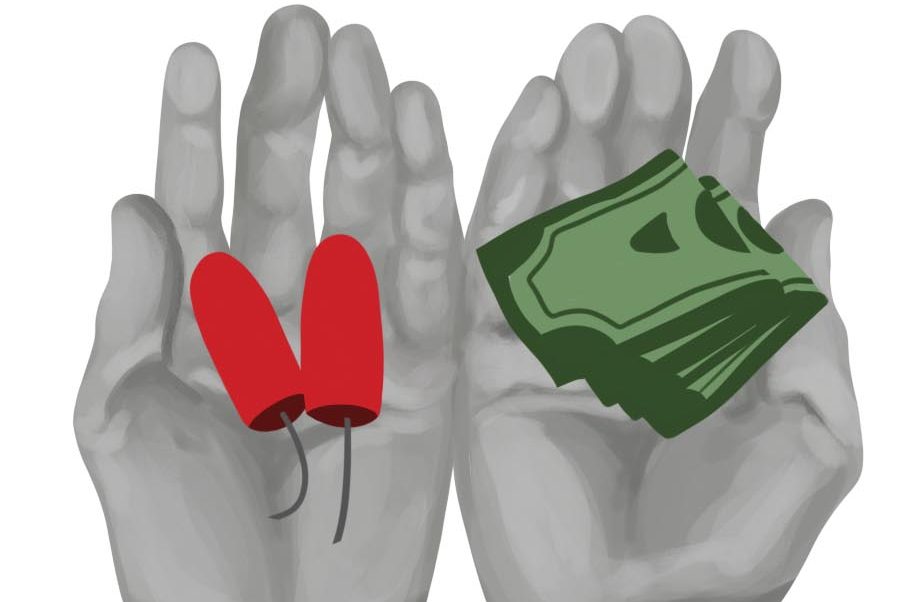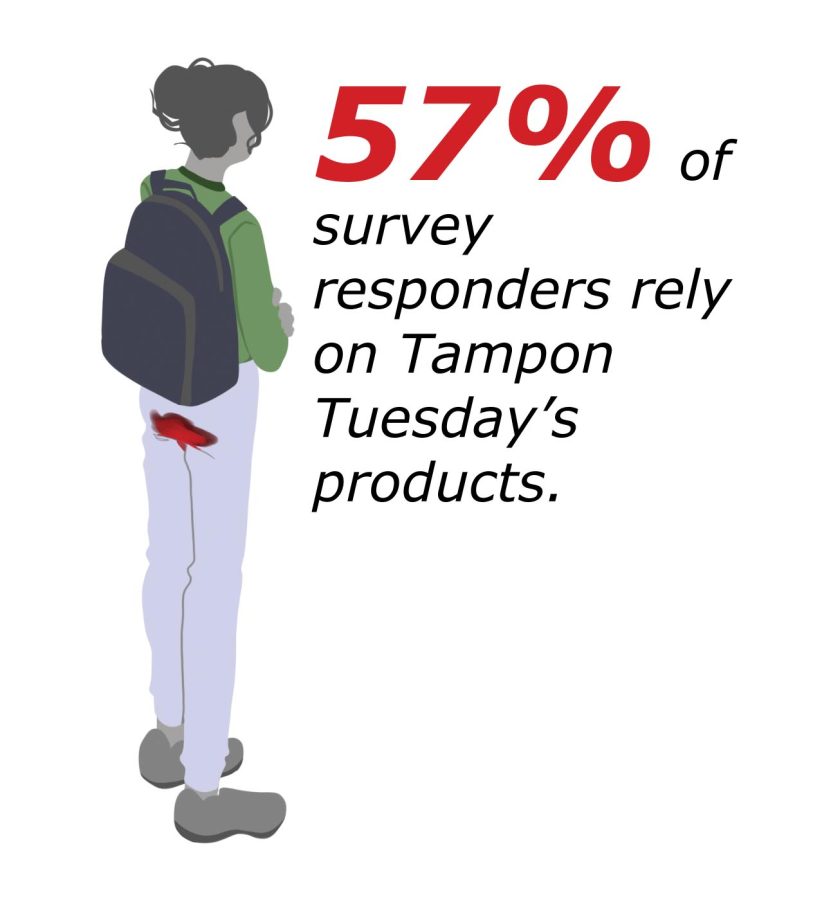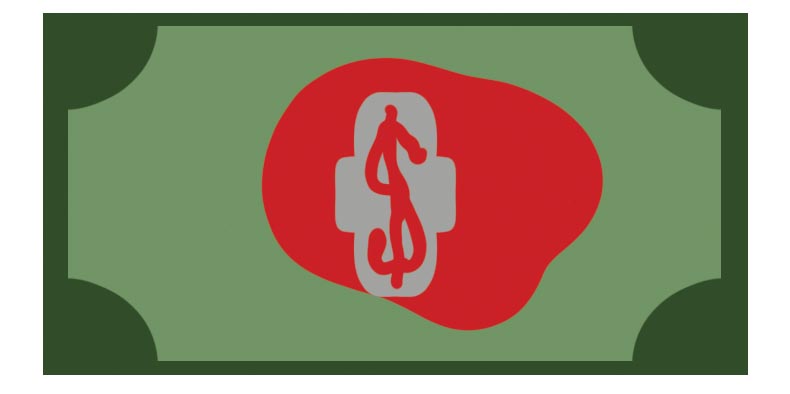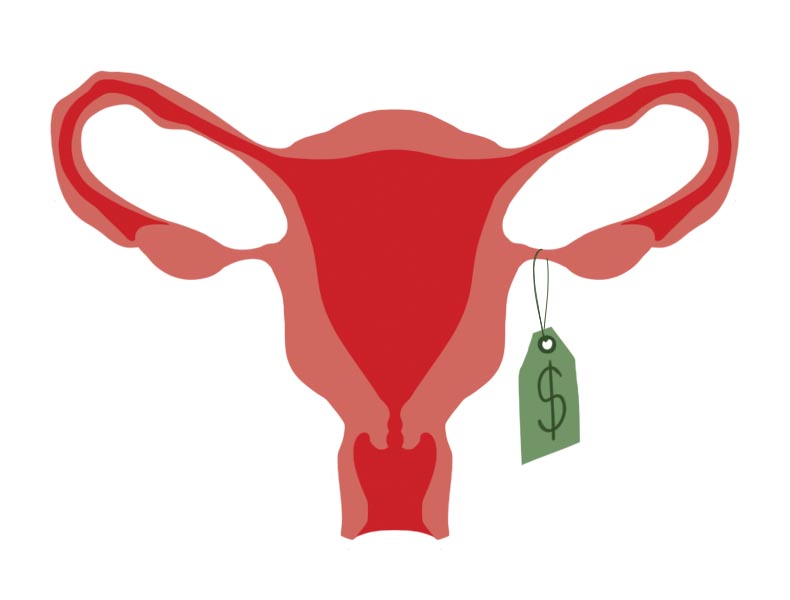Your donation will support the student journalists of Iowa City High School. For 2023, we are trying to update our video and photo studio, purchase new cameras and attend journalism conferences.
Period Poverty at City
February 14, 2023
The City Connection
Every other Tuesday morning, City High student Jennie Gidal ‘23 sells baked goods in the main foyer in exchange for menstrual products or cash donations. This is Tampon Tuesday, which Gidal is head of. It is an effort by students, sponsored by Student Senate, to provide free period products in school restrooms through student donations. According to Gidal, Tampon Tuesday not only exists to provide free menstrual products in the restrooms but also to destigmatize periods.
“[Tampon Tuesday] exists to supply all the tampons and menstrual products in the bathrooms for students who may not have access to them at home or just those people who may have forgotten one at home,” Gidal said. “But [it] also exists to normalize talking about periods and menstrual products and the need for them because it is definitely a necessity.”
Gidal first got involved in the group last year.
“I first learned about Tampon Tuesday my junior year of high school and I learned about it from my friend,” Gidal said. “She was running it and it seemed like such a good cause.”
Gidal had always been curious about where the period products in the school restrooms came from, and has since found a calling being involved in the group.
“I always wondered where the tampons in the bathrooms came from. And when I started helping [my friend] do [Tampon Tuesday], it felt like I was actually making a difference in both ways by supplying the tampons in the bathroom and also just letting people know [about] and normalizing periods,” Gidal said.
According to the 2021 State of the Period, a national survey of American teenage students conducted by PERIOD and Thinx, the pandemic has further exacerbated period poverty among students with 23% of students facing struggles when it comes to affording necessary menstrual hygiene products. And, according to a recent survey of City High students, 57% of respondents said that they used the period products supplied by Tampon Tuesday, while 60% said they knew students who used the products.
“It’s definitely bittersweet,” Gidal said of the statistics. “It makes me really happy that people are actually using the products that we supply in the bathroom but it also makes me sad that so many people have to rely on [the products from Tampon Tuesday], that it’s our job to make that happen, and [that] the school district isn’t helping.”
In years past students have tried to get district administration’s attention about the issue of period product availability at City.
“Last year, there were a couple of students who communicated with the administration and the school board to [try to] get funding for products for our school directly,” Student Body Co-President Mary Cate Pugh ‘23 said. “They said ‘Oh, they’re provided in the health office’ but that wasn’t really what we were going for. We wanted them in the bathrooms because that’s the most successful [place for students to get the products]. So then we created Tampon Tuesday.”
In addition to the donations taken by Tampon Tuesday, Pugh secured a grant from the Iowa City Community Foundation for products in the school restrooms.
“This summer, I applied for a grant from the Iowa City Community Foundation and we got to $250,” Pugh said. “We’ve tried a bunch of different things. But mainly, the direct funding from the district has not been approved yet.”
According to the State of the Period survey, period poverty particularly affects Latinx and Black students with 23% of Latinx students having to choose between buying menstrual hygiene products or other necessities such as food or clothing. Furthermore, according to the same study, almost half of Black and Latinx students feel unable to perform their best in school because of the lack of accessible period products. For Pugh, having free period supplies in school restrooms is a matter of equity.
“I think for most people, not having period products at school is just a minor inconvenience. It’s like ‘Oh, I forgot it. Oh, well, I have some at home’,” Pugh said. “But for some students that causes a very pressing issue, because they do not have the funds to buy them themselves, or don’t feel safe asking for them at home. Students need to feel like they’re taken care of here [and] we can’t just assume that they have the money to buy them because they’re expensive.”
According to the survey of City students, 9% of respondents have missed school because of lack of products. Furthermore, 58% of respondents have been late to class because of product accessibility issues. This is a large concern of Pugh’s.
“If they don’t have [period products], then students won’t come to school when they’re on [their period], and that causes a lot of absences,” Pugh said.
Overall, Pugh is thrilled that Tampon Tuesday has been successful with consistently providing products to students.
“Students are relying on what they have at school. And I think it’s great that Tampon Tuesday has become so reliable that students know it’s a resource and that they can use them,” Pugh said.
The concern about period product accessibility is shared by City High Orchestra Director Megan Stucky-Swanson.
“A couple years ago, Mrs. Davenport, the old Music Secretary and I thought that the women’s bathroom across our hall had wasted space and we wanted to make a little bit nicer area for the students,” Stucky-Swanson said. “And there’s a lot of women that need products that don’t have access to them. So we thought we would make that our pet project.”
For the first few years of supplying hygiene products in the music wing bathroom, the products were funded completely by Stucky-Swanson and Davenport. The products in the music wing bathroom are now majority funded by donations from orchestra families.
“[The products were funded by us] when we first started and all of last year,” Stucky-Swanson said. “But in the summer, I created an Amazon wishlist for the orchestra program and so I had lots of parents that donated.”
Stucky-Swanson has been happy to help provide menstrual products for students.
“Not everybody has access to them so I feel like it’s something that I can do to help make somebody’s day a little bit easier,” Stucky-Swanson said. “So worth it.”
In addition to the district providing products to any student who walks into the Health Office and getting a yearly donation of products from OB-GYN students, School Nurse Suzi Wilkes makes makeup bags with products for students who regularly use the Health Office’s products.
“We have some little makeup bags that are full, so if we see it’s the same students [who] come in and get them on a regular basis we’ll say ‘hey do you need some?’,” Wilkes said.
Erin Partridge ‘24 believes that the accessibility of period products at City has been improved by having products in the restrooms.
“I think [access to period products at City is] pretty good but I think most of that is due to the Tampon Tuesday people and not the school itself,” Partridge said.
Partridge believes that for the school to make menstrual products as accessible as possible it is necessary to provide them in all restrooms.
“I think the school should provide menstrual supplies in all bathrooms and not just in the health office because it can be uncomfortable to ask,” Partridge said. “Emphasis on all the bathrooms because I have friends who don’t feel comfortable going in the women’s bathrooms but need menstrual products.”
The Administrative Perspective
The ICCSD School Board has heard concerns from City students about the issue of period product availability in the bathrooms in the past.
“We have [heard from students in the past] and we know that [period products are] an ongoing issue,” said School Board Vice-President Lisa Williams. “We also know that the nurse’s office stocks those products, but it can sometimes be uncomfortable for students to go to the nurse’s office to get those and also [can be] inconvenient. Unfortunately, we also know that when we stock period products in some of the restrooms, some students take them and use them as they’re not intended to be used. And so it’s a difficult line for us to find where to put the products so that they’re accessible but also so that they’re being used as intended.”
According to Williams, the primary concern with stocking products in restrooms is misuse.
“I think misuse is really our primary concern. I don’t think that we have a financial barrier in stocking the restrooms with the products that students need,” Williams said.
Williams believes that lack of access to products shouldn’t be a barrier to learning.
“We’ve heard stories of how difficult the day can be for a student that doesn’t have access to products that they need,” Williams said. “And it’s a priority for us that that not be a barrier to learning.”
School Board President Ruthina Malone shares this sentiment.
“50% of our student population and our workforce would require some type of usage [of period products] at one point in time when they’re in our building,” Malone said. “We should not put students at risk to have an embarrassing moment because they couldn’t have the supplies that they need.”
Williams is supportive of policy change to get period products available in school restrooms.
“Absolutely [I am supportive of policy change],” Williams said. “If we can do so in a way that they’re being used as intended, and part of that may just be an education campaign for students – letting them know that it’s really important, why they’re in the bathrooms, what uses they’re for, respecting the intended use, and not abusing the products that are placed there for the benefit of the people that need them.”
Malone is also interested in addressing this issue in the future.
“[There] needs to be a way that we as a School District and/or community can rally together to take this need off the table for our students because it may sound small, but to someone in need is huge,” Malone said. “We have this huge need that we’re leaving up to our students to take care of other students. So as a district, I would hope that [there’s] a way for us to offset that need because [period] products aren’t cheap. Definitely something that as a District and as a Board that I would like to see us try and address.”
Looking to the Future
While Pugh is thrilled with the student response to Tampon Tuesday, she is going to keep pushing for district-level action on the issue of period poverty in schools.
“We’re not going to stop trying. There’re a lot of similar programs like Tampon Tuesday that’ve popped up around the state so this issue has a lot of awareness,” Pugh said. “The Des Moines Register emailed me and I think a couple of other students about Tampon Tuesday, so the awareness is out there. And that’s the first step to actually being able to solve the problem and proving that having these products at our school are not posing any sort of issue.”
According to Pugh, City students have set a really good example of interacting with the products and fundraising for them.
“We are a really good example that students are not going to take these products and make fun of them or destroy them or throw them around,” Pugh said. “It was actually really awesome how respectful City High students were and how we all kind of came together to contribute. It’s a good way for students to come together on an issue that we all know is real, and we all can help.”
Pugh and Gidal are working together on next steps to garner district-level action on the issue. These next steps include mapping out spending and product use to create a cost per student estimate. According to Free the Tampon, an advocacy group that works to implement free period products at the state level, funding products for students would cost an estimated $5-$7 a year per student.
“We’re working to create a very detailed plan of how many tampons or pads we’re using each week, this is how much money we spend,” Pugh said. “[We’re working] to create something to present to the school board that’s very detailed and looks very doable because I think right now it looks kind of murky. Just like showing them that this is an inexpensive problem. It does not take much to supply these products. And if we can show them exactly how much we need, then I think they’re more likely to consider it.”
95% of survey respondents believe that getting funding from the ICCSD for products in City restrooms would be helpful. This sentiment is shared by Gidal. However, she also believes that organizations like Tampon Tuesday still would have a place at City to keep the discussion around periods alive.
“I think [funding from the district] would be very beneficial for making sure everyone gets what they need,” Gidal said. “I do think Tampon Tuesday is definitely necessary to keep periods talked about and the need for menstrual products talked about. Period poverty is real.”



